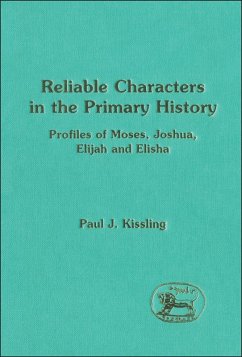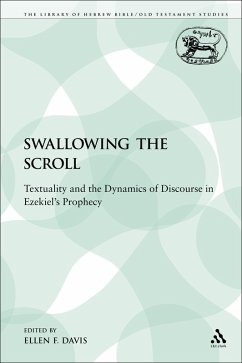
The Signs of Jonah (eBook, PDF)
Reading and Rereading in Ancient Yehud
Versandkostenfrei!
Sofort per Download lieferbar
29,95 €
inkl. MwSt.
Weitere Ausgaben:

PAYBACK Punkte
15 °P sammeln!
In this new and refreshing approach to the story, Ben Zvi starts with the premise that Jonah, like most books, was written to be read. He therefore concentrates on intended and unintended readership(s) of Jonah and the network of messages that they were likely to derive through their reading and rereading. He starts with the historical and social matrix of the production and reading of the book in antiquity, analyzes its self-critical approach and its metaprophetic character as a comment on the genre of prophetic books and on prophets. How does the historical fact of Nineveh's destruction acua...
In this new and refreshing approach to the story, Ben Zvi starts with the premise that Jonah, like most books, was written to be read. He therefore concentrates on intended and unintended readership(s) of Jonah and the network of messages that they were likely to derive through their reading and rereading. He starts with the historical and social matrix of the production and reading of the book in antiquity, analyzes its self-critical approach and its metaprophetic character as a comment on the genre of prophetic books and on prophets. How does the historical fact of Nineveh's destruction acually shape the reading? Or the perception of Jonah as a runaway slave?Ben Zvi demonstrates the malleability of interpretation of the Book of Jonah and its limitations, as attested in different communities of readers. He asks why certain messages are easily accepted by particular historical communities, whereas others are not raised at all.













